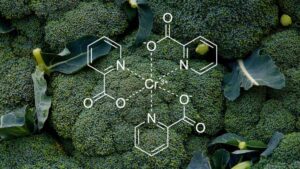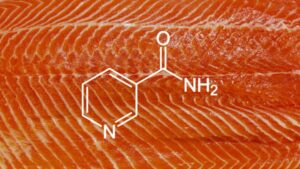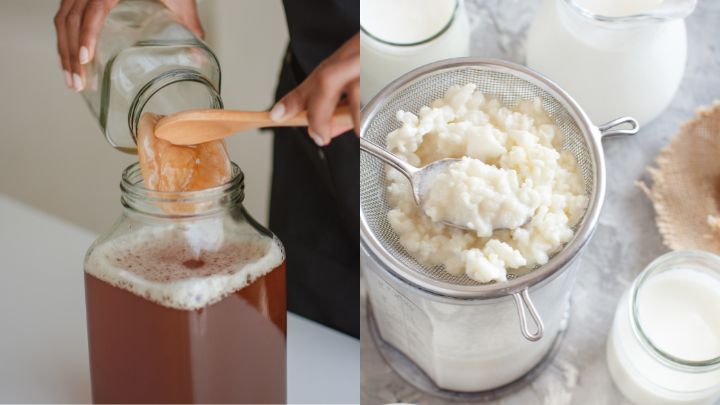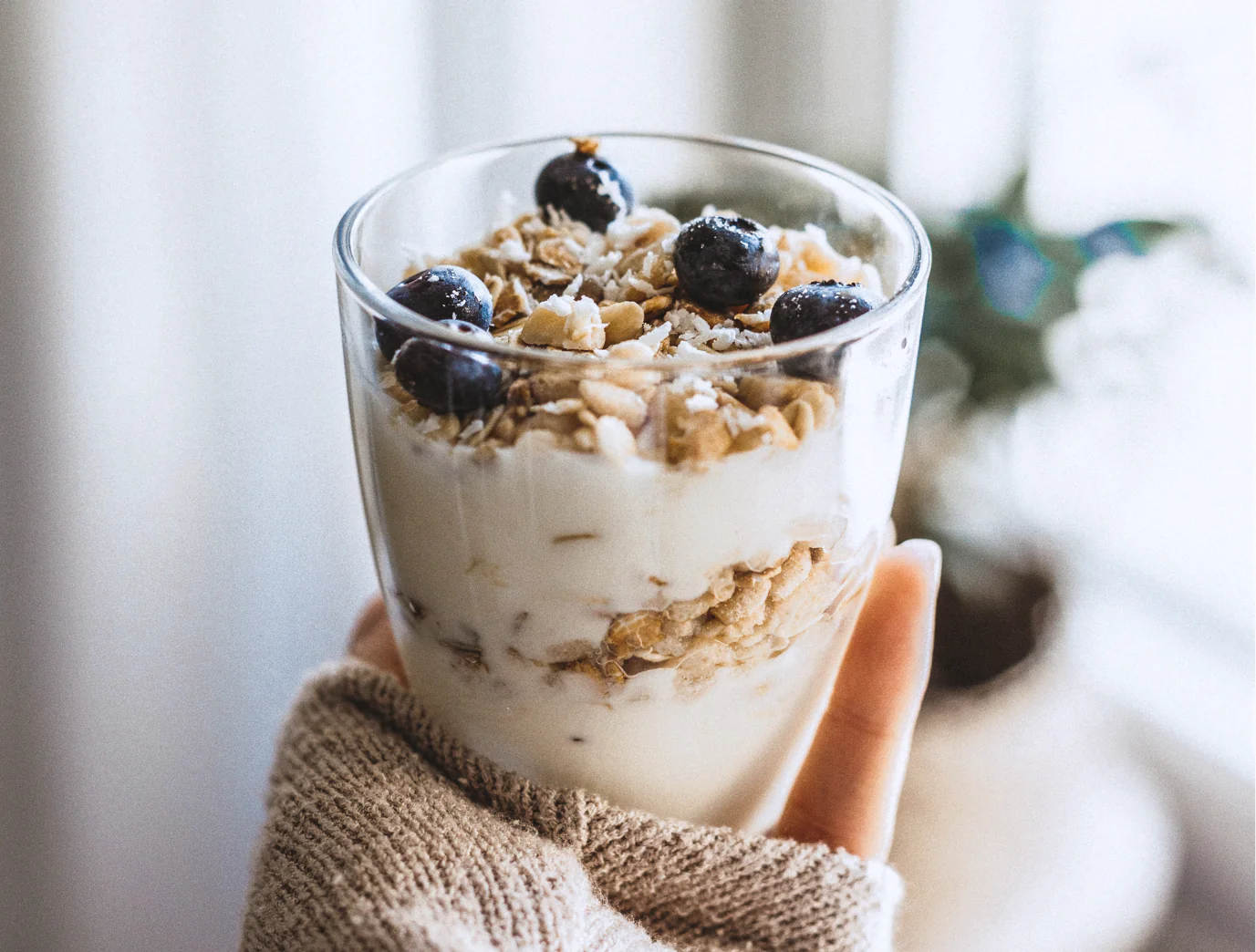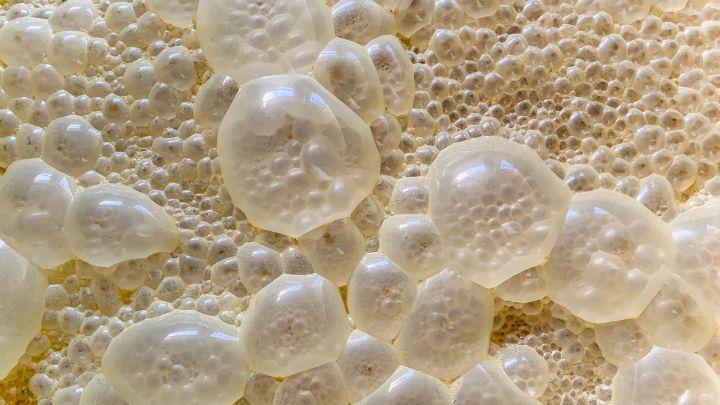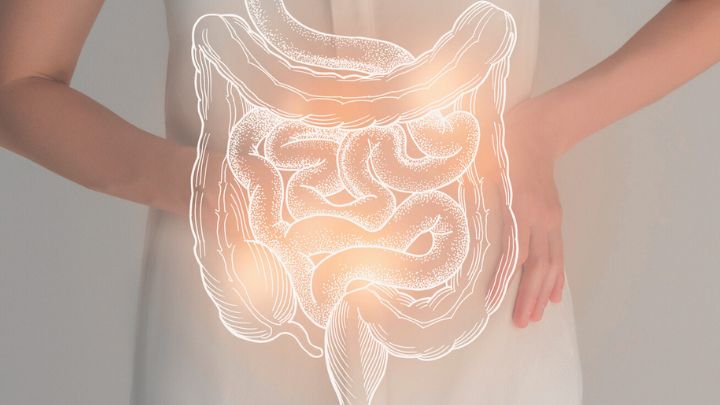As we age, our risk for non-communicable diseases like type 2 diabetes, cardiovascular illnesses, cancer, and neurodegenerative conditions increases.
As such, biohackers worldwide are exploring various science-backed interventions, all aiming to boost longevity.
Dietary changes, physical activity, and cutting-edge treatments like NAD+ precursors, sirtuin agonists, and senolytics, are becoming popular in the wellness world.
One powerful option is kefir, a fermented milk beverage.
Kefir is packed with beneficial bioactive compounds that positively impact your gut microbiome—a key factor in healthy ageing.
More and more health enthusiasts are turning to kefir for its ability to improve gut health, slow physiological deterioration, and boost overall wellness.
In this Avea guide, we’ll explore everything you need to know about kefir, from its health benefits to how you can easily add it to your diet.
Whether you’re buying it or making it yourself, discover how kefir can be a delicious and effective tool for better health and longevity.
In this article
Free guide to reverse your biological age

- Master the science of rejuvenation.
- Apply proven tips to turn back the clock.
- Transform your health with top longevity specialists.
Why do you need a healthy gut microbiome?
A healthy gut microbiome is vital for overall health. This community of trillions of microorganisms, including bacteria, viruses, and fungi, plays a crucial role in digestion, immunity, and more.
When balanced (eubiosis), your microbiota adapts well to changes. However, disruptions like antibiotic use or harmful bacteria can cause imbalance (dysbiosis), contributing to ageing and diseases.
Age affects gut microbiota through changes in diet, stress, and medication. Mucin, a protective gut lining substance, decreases with age, thinning the mucus layer and altering microbe levels.
Gut bacteria produce short-chain fatty acids (SCFAs) during fermentation, which lower colon pH and strengthen the intestinal barrier. A weakened mucin layer can allow harmful microbes to trigger inflammation, linking ageing to chronic diseases.
This is because your gut microbiota influences many organs, including your heart, brain, liver, and pancreas. Probiotics, such as those in kefir, may help counteract these changes and boost your more than just your gut health.
But first things first, what even is kefir?
What is kefir?
Kefir is a fermented drink made from kefir grains and milk or water, known for being acidic, frothy, and low in alcohol.
It originated in the Caucasus, Eastern Europe, and the Balkans, and is now enjoyed worldwide for its health benefits.
What sets kefir apart from other fermented foods are its unique starter grains, which are irregularly shaped and range from white to light yellow, resembling small cauliflower florets.
These grains are a mix of lactic acid bacteria, yeasts, and acetic acid bacteria within a matrix of exopolysaccharides (high-molecular-weight polymers composed of sugar residues secreted by these microorganisms), kefiran, and proteins.
Age backwards by 24 years like Dave Pascoe

- Learn the science that helped Dave enter his 60s with a biological age of less than 40.
- Apply proven longevity strategies to transform your own health.
- Implement expert tips for lasting youthfulness.
Is kefir a probiotic?
Yes, kefir is a probiotic. It contains a rich mix of beneficial microbes that contribute to its health benefits. These include:
- Improved lactose digestion
- Anti-cancer properties
- Anti-hypertension effects
- Anti-diabetic benefits
These benefits stem from the probiotics present in kefir and their interactions during fermentation.
What does kefir contain?
1. Microbes in kefir
Kefir grains are rich in microbial species like:
- lactic acid bacteria
- acetic bacteria
- yeasts
- fungi
These microbes in kefir fall into two main groups based on how they ferment sugars:
- Homo fermentative and Heterofermentative types: These microbes produce only one main product (like lactic acid) or multiple products (like lactic acid, carbon dioxide, and alcohol) during fermentation.
- Lactose- and non-lactose-assimilating yeasts: This describes whether the yeasts can break down lactose (a sugar found in milk) or not.
In simpler terms, kefir contains different types of microbes that process sugars in various ways, contributing to its unique health benefits.
For the nerds, common bacteria in kefir grains include Lactobacillus kefiranofaciens, Lacticaseibacillus paracasei, Lactiplantibacillus plantarum, Lactobacillus acidophilus, and Lactobacillus delbrueckii subsp. bulgaricus.
Key yeasts are Saccharomyces cerevisiae, S. unisporus, Candida kefyr, and Kluyveromyces marxianus subsp. marxianus.
But, here’s the most important part.
Whilst bacteria like certain Lactobacillus species are consistently present, the microbes present in kefir can be as diverse as you can imagine.
In fact, the microbial makeup of kefir grains varies according to their:
- geographic origin
- local climate
- grain-to-substrate ratio
- fermentation time
- temperature
- agitation
These factors largely influence kefir’s microbiota and its nutritional content.
2. Nutrients in kefir
Besides probiotics, kefir has an impressive nutritional profile that offer further health benefits.
Packed with essential vitamins, amino acids, macro elements, and microelements, kefir can work to support brain function, metabolic activities, immune function, and overall homeostasis.
Here’s a breakdown of the nutrients present in kefir:
Vitamins | Thiamin (B1) Riboflavin (B2) Pantothenic acid (B5) Folic acid (B9) Ascorbic acid (C) Retinol (A) Phylloquinone (K) |
| Amino acids | Serine Threonine Alanine Lysine Valine Isoleucine Methionine Phenylalanine Tryptophan |
| Macro elements | Potassium Calcium Phosphorus Magnesium |
| Microelements | Zinc Copper Iron Manganese Cobalt Molybdenum |
A study in 2017[1] estimated that traditional milk kefir consists of around:
- 3.0-3.4% protein
- 1.5-3.5% fat
- 2.0-6.0% natural sugars
- approximately 90% water
Recent analysis has also identified several other bioactive compounds in kefir. These include alkaloids, phenols, esters, fatty acids, steroids, polyalkenes, heterocyclic compounds, and aromatic aldehydes.
These compounds are vital for brain function, metabolic activities, and immune function. They serve as energy regulators and neurotransmitter precursors.
Besides, kefiran, a polysaccharide from kefir grains, have been shown to help in the mental recovery of severe brain injury patients and promote ageing markers in the elderly.
By binding to various protein targets, kefiran from kefir’s grains, may help maintain homeostasis through the gut-brain axis.
Experience Avea’s next-gen probiotic supplement

- 4x probiotic survival: Advanced Duocap® technology
- Targeted gut-brain support: Panax Ginseng, 10 strains (30Bn CFUs), Vitamin B6 & B12
- Backed by science: 1000+ studies
While kefir is an excellent source of natural probiotics, adding a high-quality supplement like Biomind can provide targeted, slow-release support to further boost your gut health daily. All thanks to its unique combination of strains and advanced delivery technology.
What are the health benefits of kefir?
So, with its rich probiotics, essential vitamins and minerals, and a range of bioactive compounds, what does kefir bring to the table when it comes to boosting health and preventing diseases?
Let’s see what the scientists have to say. The following comes from a review [2] of 33 studies from 2012 to 2024, highlighting kefir’s positive effects on gut microbiota and metabolic health, particularly in the context of age-related diseases.
Learn why you should consider incorporating kefir into your diet.
1. Is kefir good for type 2 diabetes?
Type 2 diabetes involves chronic inflammation and insulin resistance, often linked to an imbalance in gut bacteria. Researchers claim that kefir may help to manage diabetes and prediabetes symptoms.
Studies on mice show that Lactobacillus mali (a type of lactic acid bacteria) from kefir grains, lowers blood glucose and improves insulin sensitivity.
Learn how to balance your blood sugar levels and build an insulin-resistance diet plan here.
In rats, whole milk kefir improved insulin resistance due to its calcium content and fermentation bioactive compounds.
When it comes to clinical relevance, a study of 60 diabetics found that consuming kefir daily for 8 weeks reduced blood glucose and glycated haemoglobin levels, highlighting kefir’s actual potential in prediabetes and diabetes management in humans.
2. Is kefir good for your heart?
Dyslipidemia is an imbalance of lipids in blood. It increases the risk of heart diseases, as well as reduce the diversity of the gut microbiota, leading to inflammation and poor health.
Kefir can boost heart health by lowering triglycerides, total cholesterol, and LDL cholesterol (the bad cholesterol) levels in obese mice. It also reduces blood pressure thanks to ACE-inhibitory peptides, which help relax blood vessels.
Studies on hypertensive rats showed that kefir reduced cardiac hypertrophy, improved endothelial function, and decreased inflammatory markers.
Regularly drinking kefir has also been found to lower arterial pressure and improve baroreflex sensitivity–your body’s ability to regulate blood pressure.
These findings highlight how beneficial kefir can be for heart health.
3. Is kefir good for your brain?
Your gut and brain are deeply connected, influencing each other through various pathways.
This gut-brain axis plays a significant role in neurodegenerative conditions like Alzheimer’s disease or dementia. An imbalance in your gut bacteria can affect brain function and contribute to such diseases.
Surprisingly, studies have already revealed kefir’s potential in improving mental health. A study was done on mice that were exposed to stress. They found that kefir, made from soy and cow’s milk, significantly reduced anxiety and depression.
Even better? Kefir improved cognitive performance of those mice. These benefits are linked to kefir’s high amount of amino acid–tryptophan.
In another study, mice with induced depression showed improved activity and reduced constipation after consuming kefir. This was due to better tryptophan metabolism and a balanced gut microbiota.
Yes, tryptophan is a big deal. Tryptophan boosts serotonin levels, making it a key factor in mood and brain health.
Similar positive effects were seen in aged mice, where kefir reduced oxidative stress, enhancing overall brain health.
Such kefir’s benefits are also supported by clinical studies. Alzheimer’s patients who consumed kefir for 90 days showed significant cognitive improvements, better memory, and enhanced brain function.
This shows that routinely consuming kefir could be a valuable addition to treatments for neurodegenerative diseases, and may even help prevent them.
4. Is kefir good for cancer?
Cancer cells grow rapidly and resist apoptosis, the process of programmed cell death that removes damaged or unnecessary cells in your body.
That’s how they multiply uncontrollably, causing the chaos. Probiotics like kefir could help combat this growth by boosting immune responses and balancing gut bacteria.
In fact, kefir has shown antitumor effects in cancers such as breast, leukaemia, skin, gastric, colon, and sarcomas.
Studies on mice with colorectal cancer found that kefir improved gut microbiota by reducing harmful bacteria and increasing probiotics. This lead to decreased tumour growth and inflammation.
Kefir’s anticancer properties stem from its bioactive peptides, which activate your immune cells and promote apoptosis, a crucial process. These peptides also trigger the release of anti-inflammatory and anti-proliferative molecules.
Kefir is indeed a promising dietary component for cancer prevention and treatment, deserving further research into its potential benefits.
How to drink kefir?
This dairy product is now being sold everywhere, including countries like the US, France Brazil, and Japan.
Its numerous health benefits are becoming well-known, thanks to its rich content of beneficial microorganisms and bioactive compounds.
Wondering how to incorporate kefir into your diet? Here are some popular ways people enjoy kefir:
- Straight up: Drink kefir on its own as a refreshing, tangy beverage. It’s an easy way to get a quick health boost, straight from your supermarket.
- Smoothies: Blend kefir with fruits and vegetables to create a delicious, probiotic-rich smoothie.
- Salad dressings: Mix kefir with herbs and spices to make a tangy, probiotic-packed salad dressing.
- Dips: Combine kefir with avocado or herbs to create a healthy dip for veggies and snacks.
- Baking: Use kefir as a substitute for buttermilk or yogurt in baking recipes for pancakes, muffins, and other treats.
No need to worry if you’re one of those who can’t enjoy dairy. There’s also a surge in fermented non-dairy beverages. Scientists are exploring how to adapt kefir to non-dairy bases like fruits, vegetables, and even molasses.
What makes kefir different?
So, what makes kefir stand out from the crowd? It’s all in the details.
Tweaking the amount of kefir grains and the fermentation time can really change up this probiotic drink.
In a study testing different conditions, they found that playing with these factors reduced sugar levels and increased acidity, phenols, carbon dioxide, and organic acids.
These tweaks also changed the drink’s colour, brightness, and antioxidant activity. It’s pretty cool how much you can customise it.
But kefir isn’t just about its nutritional content– it’s also super versatile. You can experiment with different fermentation times and grain amounts to get the taste and health benefits you want.
This makes kefir a great fit for various diets and recipes, whether you’re into smoothies, dressings, or even baking.
What really sets kefir apart is its diverse mix of beneficial bacteria and yeasts. This unique combo gives it powerful probiotic properties, helping your gut health, boosting your immune system, and may even offer some protection against certain diseases.
And it doesn’t stop there. Kefir’s bioactive compounds are also being explored for eco-friendly packaging and even medical uses like tissue engineering. So, kefir is not just a nutritional powerhouse, but also a versatile ingredient with tons of applications.
Is kefir better than yoghurt for gut health?
Whilst kefir is often described as a drinkable yoghurt, it’s actually a unique fermented dairy product.
Both kefir and yoghurt are made from milk and are rich in beneficial bacteria, but they differ in their fermentation process, texture, and microbial content.
Kefir is a fermented drink made with kefir grains, which contain a mix of bacteria and yeasts. This gives kefir a tangier, more sour taste and a thinner consistency compared to yoghurt.
Yoghurt is made by fermenting milk with specific bacterial cultures like Lactobacillus bulgaricus and Streptococcus thermophilus, resulting in a thicker, creamier texture.
The fermentation process of kefir involves multiple stages and a wider variety of microorganisms, leading to a broader spectrum of probiotics.
This makes kefir potentially more beneficial for gut health compared to yoghurt due to its higher probiotic content. Whilst both can be used in similar culinary applications, kefir’s unique properties and tangier taste set it apart from yoghurt. (No offence to yoghurt, we love it too, especially Greek yoghurt!)
But when it comes to kefir vs. kombucha: which fermented, probiotic-rich beverage is healthier? Learn more here.
How to make kefir at home?
Making kefir at home is simple and requires only a few ingredients and steps. Here’s how to do it, inspired by an online recipe from Dimitra’s Dishes on YouTube:
Ingredients:
- Kefir grains
- Organic milk (cow, goat, or non-dairy options)
- A clean jar
- A strainer
- A container to catch the kefir
Instructions:
- Pour milk into a clean jar, leaving some space at the top.
- Add the kefir grains to the milk.
- Cover with a cloth or paper towel secured with a rubber band.
- Leave the jar at room temperature for 18–24 hours.
- After fermentation, strain the kefir through a sieve into a container, separating the grains from the liquid.
- Store the strained kefir in the fridge and consume within a week. Reuse the grains for the next batch by adding them to fresh milk.
Tips:
- Do not rinse the kefir grains.
- Store the grains in the refrigerator with milk if not used immediately.
Keynote from Avea
Kefir is more than just a trendy health drink—it’s a fermented milk beverage packed with beneficial microbes like lactic acid bacteria, acetic acid bacteria, and yeasts.
These microbes, and the bioactive substances they produce, make kefir a powerful natural probiotic. The unique composition of kefir grains varies by geographical origin and fermentation methods, but consistently includes specific Lactobacillus species, contributing to its health benefits.
Kefir stands out for its adaptability, rich nutritional profile, and extensive health benefits, from supporting gut health to potentially boosting longevity.
Its versatile uses make it a practical addition to any diet. But, kefir’s potential applications extend beyond nutrition. It’s also showing promising uses in eco-friendly packaging and medical fields like tissue engineering.
In short, kefir is a standout choice for anyone looking to boost their health and wellness in a delicious, natural way.
References


